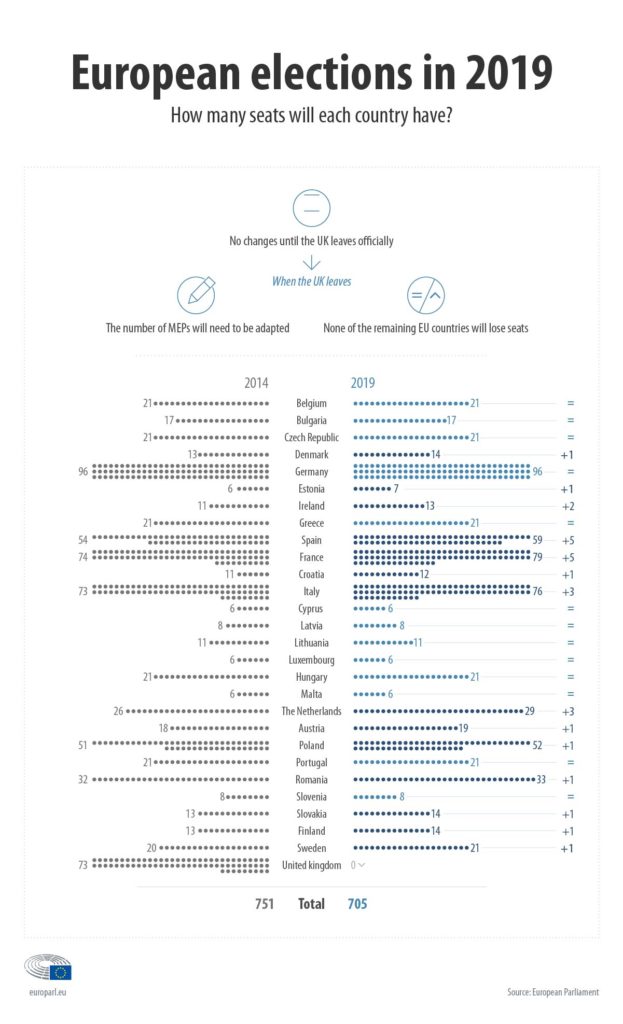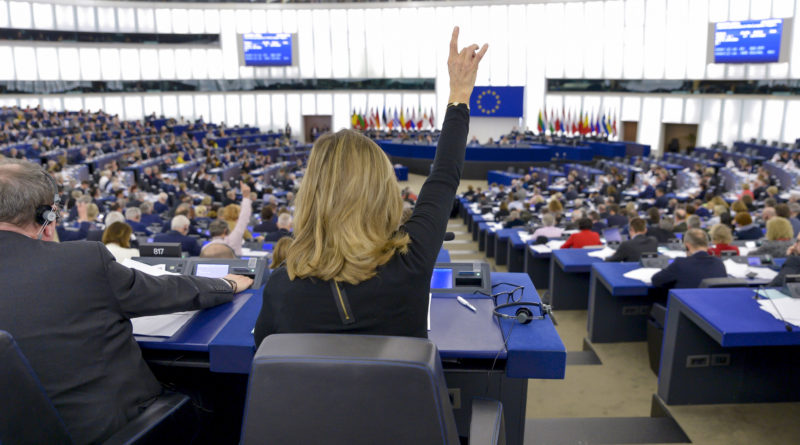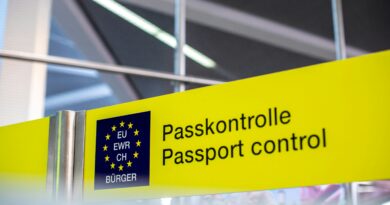EU elections: vote at risk for hundreds of thousands EU nationals in UK
Hundreds of thousands of EU nationals in the UK will not be able to cast their vote in the European parliament election this May unless Brexit is delayed. This is due to national rules that limit the right to vote from abroad and the fact that the UK will no longer elect MEPs.
All together, EU citizens in Britain that will lose or will see their right to vote in EU elections diminished make a population of over 900,000 (Eurostat data, 2017).
Not allowed to vote abroad
Each EU country defines its electoral procedures and, as regards EU elections, a number of them do not allow to vote from abroad.
Ireland, for example, requires to enrol in the register of electors, which is open only to Irish and EU nationals living in Ireland. As a result, Irish citizens who live in the UK will not be entitled to vote. Cyprus, the Czech Republic and Slovakia have similar rules, and Malta applies restrictions too.
Until the past election, in 2014, this was not a major problem because EU nationals in the UK could vote for candidate MEPs in their British constituencies. With Brexit, however, this will no longer be possible.
Vote abroad only in other EU countries
Other EU countries – Bulgaria, Greece and Italy – allow voting from abroad in EU elections only to citizens who live in another EU member state. Else, people are requested to vote in their home country, an option that few will pursue.
For this election, Italy and Greece have put in place alternative plans.
Italy is preparing the election as if the UK were to remain a member of the EU. “At the moment it is not possible to establish whether Italian electors in the United Kingdom will be able to vote at polling stations organised by the Consulate General in London and Edinburgh,” Consul Marco Villani told Europe Street. “The Ministry of Foreign Affairs has started the preliminary procedure to offer this possibility, but the procedure will be stopped in the event of a definitive UK exit from the EU before the election date,” he said.
If the election from the UK goes ahead, Italians who are temporarily in the country can also vote from the consulates, as long as they apply by March 7. If the procedure is halted, Italians in Britain will have to return to Italy to vote. In February a petition called on the President and the Italian government to allow the vote from the UK in any event.
Responding to parliamentary questions on this matter, Minister of Interior Matteo Salvini said that the “government will evaluate the feasibility” of other solutions (video).
For Greek citizens in the UK, the right to vote from the Embassy in London has recently been confirmed. Previously, Greeks in the UK were expected to vote from a neighbouring EU country. The deadline to enrol in the electoral register is April 10 and the forms are available on the website of the Ministry of Interior.
As regards Bulgaria, procedures will be announced at a later stage, an official from the London Embassy told Europe Street.
All EU nationals should be able to vote in the European parliament election, according to EU rules. But studies have shown that, because of differences in the electoral systems, the principle is far from being met. An analysis by the European parliament says that there are still “significant obstacles to the achievement of equality between all EU citizens” in this regard, and Brexit will add to the disparity.
Uncertainty over number of MEPs
The election of the European parliament will take place between 23 and 26 May 2019, depending on countries. Unless Brexit is delayed beyond that date, British citizens will not elect MEPs. It will be the first time the UK is excluded since the first direct parliament election in 1979.
The parliament is elected every five years and the vote is “one of the biggest democratic exercises anywhere in the world,” says European parliament spokesperson Jaume Duch Guillot.
In total, 373 million citizens from 27 countries will select 705 members of the European Parliament, fewer than the current 751 due to the departure of the UK. Part of the UK seats have been re-distributed to other 14 countries. But these will have to be returned should the UK decide to delay Brexit and participate in the elections.

Electoral rules country by country are available here.
Claudia Delpero © all rights reserved.
This article was published on March 2 and revised on March 24, 2019, with new information on Greece and the distribution of parliament’s seats. Photo: Michel Christen, © European Union 2019, Source: EP.




